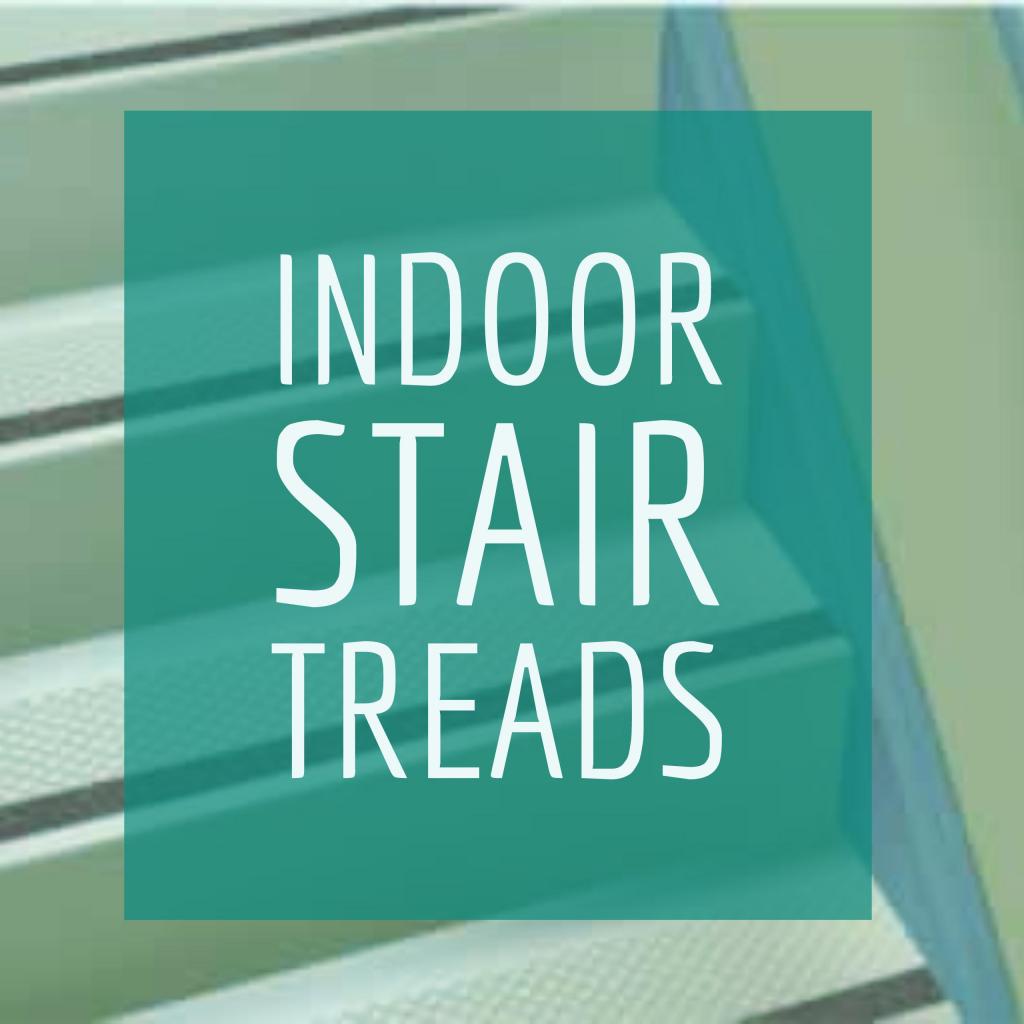Metal stair treads have long provided a safer and more durable alternative to wood and cement surfaces for indoor stairwells.
Over the past few decades aluminum stair treads have increasingly become preferable to steel for a number of reasons.
- Aluminum does not require the maintenance that is necessary for steel.
- Aluminum is lighter and, in many cases, more easily installed than steel stair treads.
- With the right construction (e.g. I-beam grating), aluminum is capable of providing the same load-bearing qualities as steel
- More malleable than steel
- Aluminum is less expensive to manufacture in a variety of styles.
Below are a few of the applications of aluminum for indoor stair treads:

Residential Application of Aluminum Stair Treads
High-friction, non-slip adhesives, such as hardwood treads can be applied to smooth surfaces to diminish the potential for dangerous, life-threatening falls in the home. Even though these adhesives do enhance safety, they aren't always the best solution.
These adhesives have relatively short lifespans; they can wear and peel, and over time become tripping hazards that may increase the risk of injury if not checked regularly. They are also not the most aesthetically pleasing.
Aluminum stair treads, on the other hand, require just a few moments longer to install but will endure for decades. Aluminum treads also provide a higher degree of friction than gritty hardwood treads.
Also when it comes to style, aluminum treads are available in dozens of attractive designs, which allows homeowners to choose from contemporary to more traditional aesthetics. In other words, this style of treads can accommodate any décor.
Commercial Application of Aluminum Stair Treads
Slips and falls litigation poses a worrisome financial threat to private businesses. In fact, for every $1 spent on floor care by American supermarkets, another $3 is spent on slip and fall claims. And, every year, over one million falls involve stairway accidents.
Prevention of falls is always a top priority for businesses. Consider these statistics:
- Slips and falls are the number one cause of accidents in hotels, restaurants, and public buildings.
- Every day, 25,000 people are victims of slip and fall accidents, an expense of over $30 billion every year.
- The American grocery store industry alone spends $450 million annually to defend against slip and fall litigation.
- And plaintiffs win 51% of premises liability claims.
Aluminum stair treads can significantly reduce the potential for these costly incidents and provide high return-on-investment ratios.
The surety of this tread type is largely unaffected by spills, e.g. liquids or grease in restaurant environments; and are more easily cleaned than many traditional surfaces.
Furthermore, required maintenance of aluminum is comparatively minimal as there is no need to reapply finishes, protective paints, or friction adhesives. Because aluminum is naturally rust-resistant, there is also no need for anodizing, except for applications in particular highly-corrosive environments.
As with residential applications, aluminum is available in any number of tread styles to suit function and décor.

